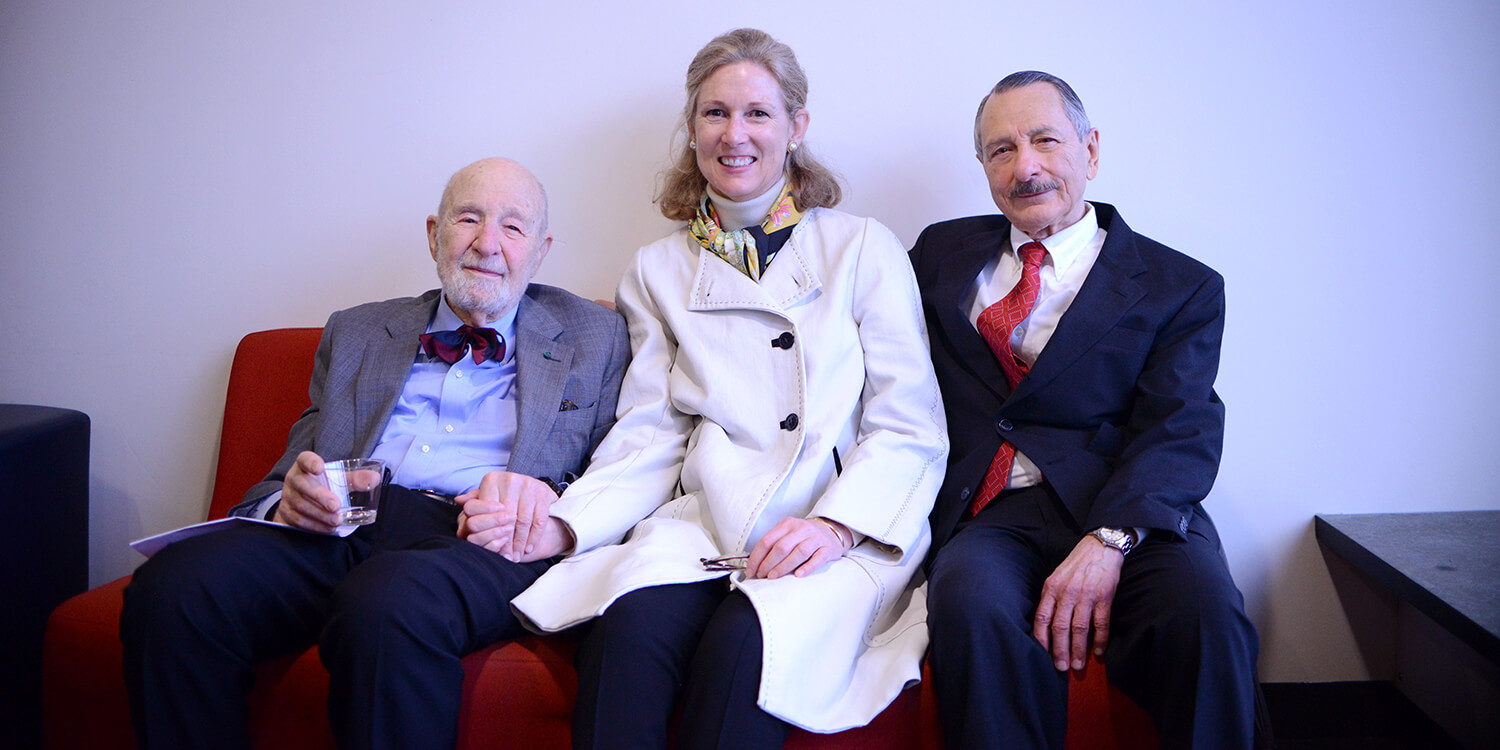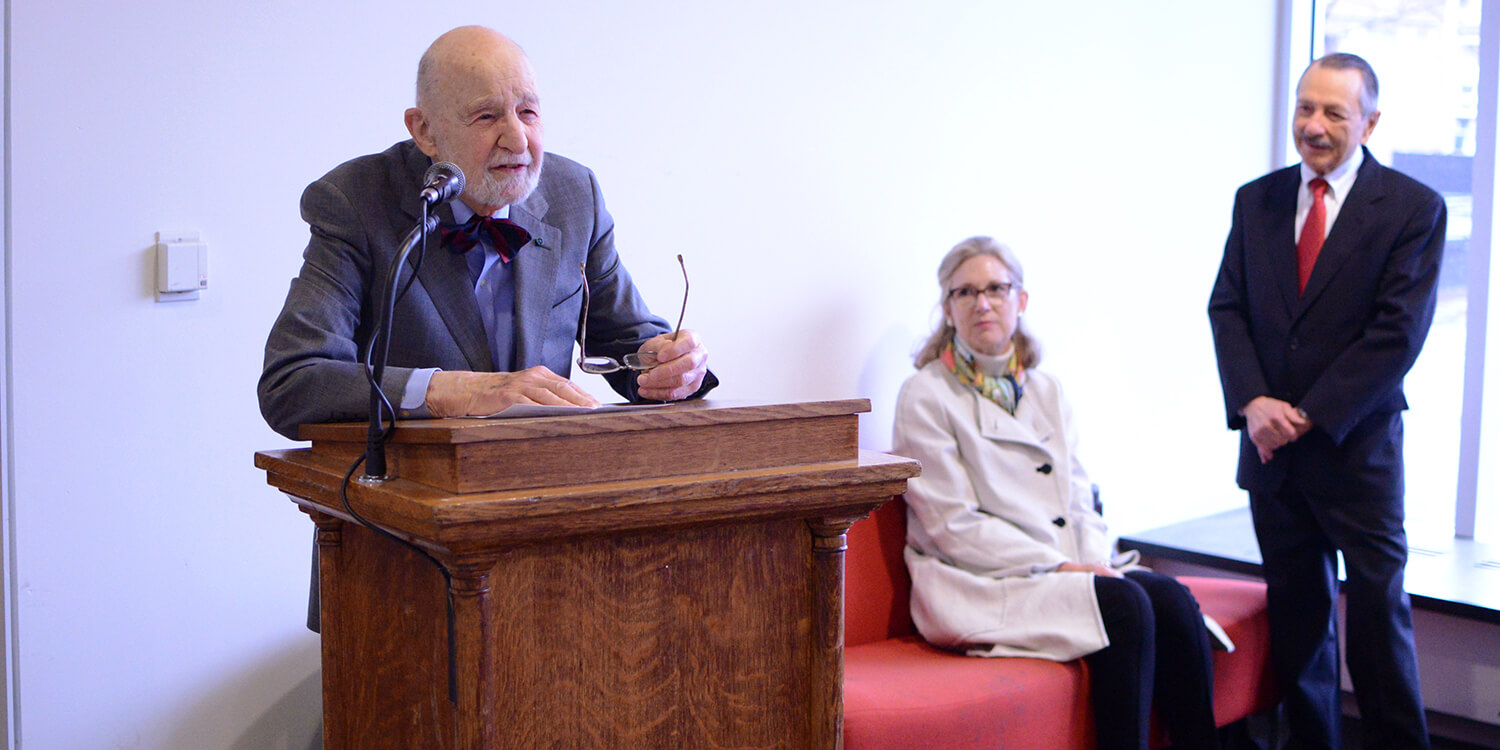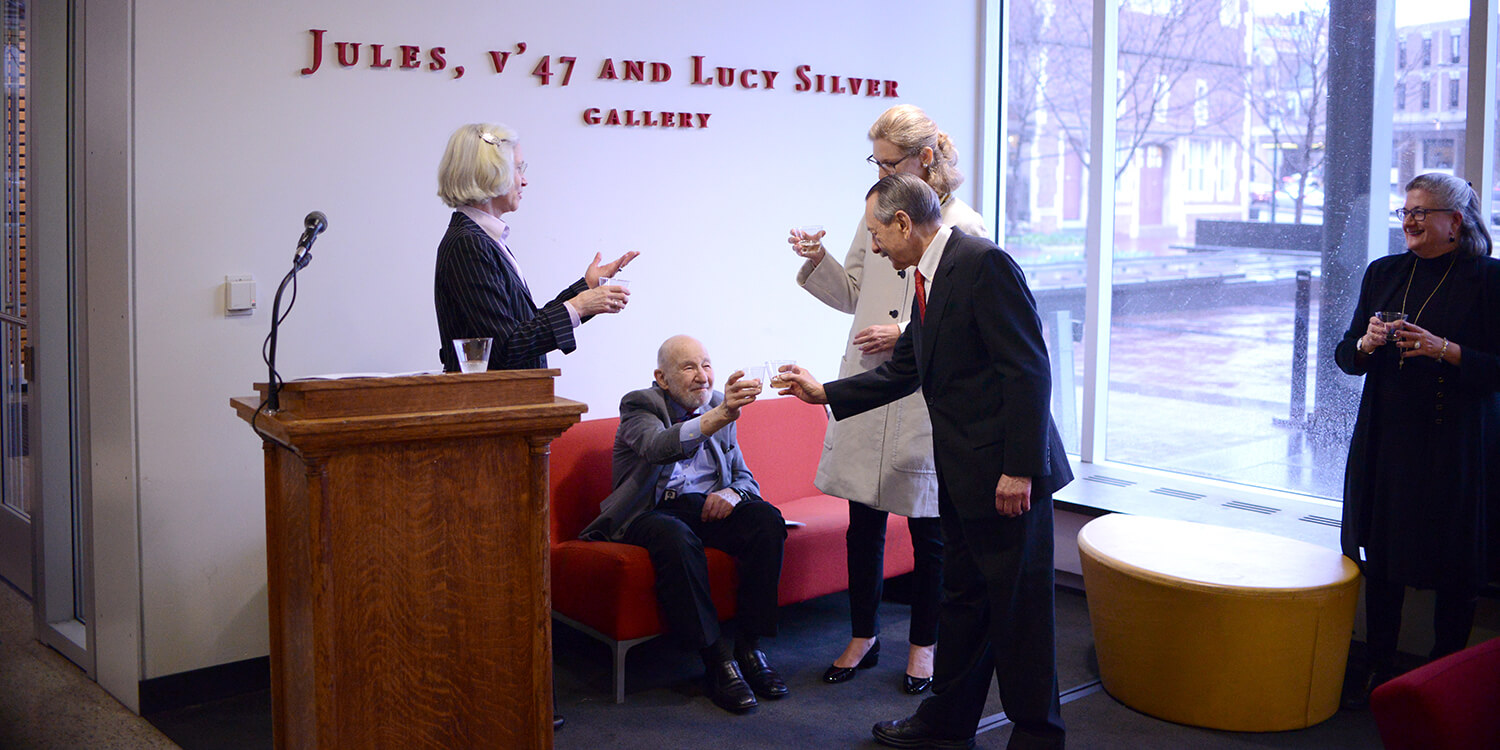
Through the generosity of Henrietta Alexander, Penn Vet will establish the Ralph L. Brinster
President’s Distinguished Professorship in honor of Dr. Ralph Brinster, V’60, renowned faculty member, scientist, and National Medal of Science laureate. The Professorship will allow Penn Vet to recruit a faculty member who will contribute to the preeminence of the School and University.
The $3 million gift exemplifies Henrietta Alexander’s ongoing commitment to animal and human health. It also extends her family’s rich history at the University of Pennsylvania, dating back to the late 19th century, when Alexander’s great-grandfather, John B. Deaver, graduated from Penn’s School of Medicine.
“I wanted to make a gift that would have lasting impact, and Penn Vet was an obvious choice given my long-standing relationship with Dr. Brinster through the Kleberg Foundation, and my family’s long legacy at Penn Medicine,” said Alexander. “It is an expression of both my ongoing confidence in Penn Vet and my admiration for Dr. Brinster. His transformational work has set global standards in research and innovation in animal and human health.”
The Professorship is named for Ralph Brinster, VMD, PhD, the Richard King Mellon Professor of Reproductive Physiology at Penn Vet and a trailblazer in the development of techniques for manipulating the cellular and genetic composition of early mouse embryos. These techniques have made the mouse the major genetic model for understanding the basis of animal biology and disease.
 Early in his career, Brinster demonstrated how mouse embryos could be cultured in a Petri dish and then showed how non-embryo cells could be added to make animals of mixed cell origin, or chimeras, which first demonstrated a method to modify the germline. He is often referred to as the founder of the field of mammalian transgenesis, with significant applications to human disease models and biotechnology. In recent years, he has developed new models of germline manipulation using sperm progenitor cell transplants. His findings have served as the foundation for genetic engineering, embryonic stem cell research, in vitro fertilization, knockout technology, and cloning. His range of contributions is unmatched in the field.
Early in his career, Brinster demonstrated how mouse embryos could be cultured in a Petri dish and then showed how non-embryo cells could be added to make animals of mixed cell origin, or chimeras, which first demonstrated a method to modify the germline. He is often referred to as the founder of the field of mammalian transgenesis, with significant applications to human disease models and biotechnology. In recent years, he has developed new models of germline manipulation using sperm progenitor cell transplants. His findings have served as the foundation for genetic engineering, embryonic stem cell research, in vitro fertilization, knockout technology, and cloning. His range of contributions is unmatched in the field.
For his groundbreaking work, Brinster was awarded the National Medal of Science in 2010, making him the first and only veterinarian to receive the prestigious award, and one of only eight scientists at the University of Pennsylvania to receive this distinction in the last 50 years.
“We are incredibly grateful to Henrietta Alexander for her commitment to innovative research in the veterinary field and for this generous gift, which honors Ralph’s pioneering work while allowing us to recruit a faculty member who will continue this legacy of excellence,” said Penn Vet Dean Joan Hendricks. “Ralph is extraordinarily humble, but was persuaded to accept this gift in his name because it will continue to support scholarship of the caliber and in the field that he established. Since Ralph also established the VMD-PhD program that gave me my start, I am personally gratified to see a permanent professorship in his name established at the school we both love.”
 Alexander grew up on a farm near Penn Vet’s New Bolton Center and joined the Penn Vet Board of Overseers in 1986. She learned of Brinster’s work while serving as director of the Robert J. Kleberg, Jr. and Helen C. Kleberg Foundation. The Foundation has supported Brinster’s research program for nearly 25 years, stemming from the family’s interest in breeding quality livestock. Alexander’s grandfather, Bob Kleberg, created the Santa Gertrudis breed of cattle and also bred numerous champion quarter horses and Thoroughbred racehorses, as well as bird dogs. In addition, he was a pioneer of wildlife conservation and provided the impetus and funds for agricultural and scientific research in various fields worldwide.
Alexander grew up on a farm near Penn Vet’s New Bolton Center and joined the Penn Vet Board of Overseers in 1986. She learned of Brinster’s work while serving as director of the Robert J. Kleberg, Jr. and Helen C. Kleberg Foundation. The Foundation has supported Brinster’s research program for nearly 25 years, stemming from the family’s interest in breeding quality livestock. Alexander’s grandfather, Bob Kleberg, created the Santa Gertrudis breed of cattle and also bred numerous champion quarter horses and Thoroughbred racehorses, as well as bird dogs. In addition, he was a pioneer of wildlife conservation and provided the impetus and funds for agricultural and scientific research in various fields worldwide.
Said Brinster, “I am enormously honored and extremely grateful to have our research recognized in this distinctive manner, particularly by such a close and knowledgeable friend. I received my medical and research training at Penn Vet, which provided a strong and unique foundation for our contributions. I am grateful for the support and interactions
that have come from many students, colleagues, and collaborators within the School, University, and scientific community that facilitated our research. It is their talent and
hard work that made our accomplishments possible.”
See more photos from the reception here.